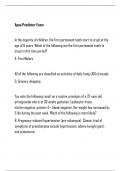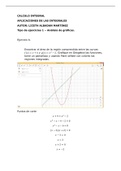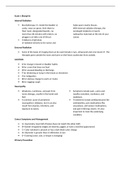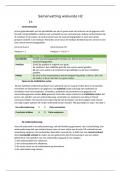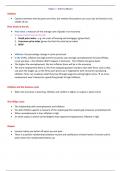Andrea Salazar
s3303365
Communicating across cultures
Group 110
Speech act analysis- Complimenting a friend
Speech acts perform an act by just performing an utterance (an agrupation of words
that express an idea). In this analysis I will look at how I would compliment a friend in
Spanish on the decoration of their room. I choose Spanish since it's my native language and
the one I feel you have the strongest command of. Using the concepts learnt in both the
lectures and tutorials I will analyze both the verbal act and the non verbal behaviour that
accompanies the act, how context could change the form of the speech act and the response
expected. Using a case study helps to understand better how the theory, that sometimes can
seem to be very abstract, works.
As a Spanish speaker If I wanted to compliment my friend on how they have
decorated a room in Spanish I would probably say: “¡Aiii! Me encanta como has decorado
tu nueva habitación”. Specifically, I speak Spanish from Spain so it is important to point out
that probably in other varieties like Latin American spanish for example, this would vary.
The literal translation of this sentence would be “Aiii! I love how you have decorated
your room” thus performing an indirect speech act with the purpose of expressing admiration
to the skills and the ability of a ratified hearer (my friend). Even if the utterance does not
name the act it intends to perform since It is not saying “I compliment you on….” it still does
perform an act of expressing appreciation. To perform this compliment the utterance includes
appreciatory sounds “Aiii” and positive evaluative verbs “adore” . While in English the verb
“to like” would probably be the chosen one for this kind of speech act, “me encanta” (I adore)
is widely used, specially in friendly environments and context. Also, when complimenting
someone on a skill, like this case study we use the speaker approach, this doesn't really
change when complimenting someone on a possession but when the formality-level changes.
¡Aiii! Me encanta como has decorado tu habitación
Positive evaluative verb
Appreciatory sound
It is necessary to continue analyzing the non-verbal behaviour that would typically
accompany this speech act in Spain. First, we can find paralanguage behavior like for
example the tone while complimenting a friend usually tends to go up and the volume is also
higher to help emphasize the enthusiasm. Also we can find some Deictic kinesics like
pointing to the room or a special object in the room that I like. Other gestures like smailing or
a positive face in general would not be strange in this case. The personal space between
speaker (Me) and hearer (my friend) is probably close and touch could be involved since we
1
s3303365
Communicating across cultures
Group 110
Speech act analysis- Complimenting a friend
Speech acts perform an act by just performing an utterance (an agrupation of words
that express an idea). In this analysis I will look at how I would compliment a friend in
Spanish on the decoration of their room. I choose Spanish since it's my native language and
the one I feel you have the strongest command of. Using the concepts learnt in both the
lectures and tutorials I will analyze both the verbal act and the non verbal behaviour that
accompanies the act, how context could change the form of the speech act and the response
expected. Using a case study helps to understand better how the theory, that sometimes can
seem to be very abstract, works.
As a Spanish speaker If I wanted to compliment my friend on how they have
decorated a room in Spanish I would probably say: “¡Aiii! Me encanta como has decorado
tu nueva habitación”. Specifically, I speak Spanish from Spain so it is important to point out
that probably in other varieties like Latin American spanish for example, this would vary.
The literal translation of this sentence would be “Aiii! I love how you have decorated
your room” thus performing an indirect speech act with the purpose of expressing admiration
to the skills and the ability of a ratified hearer (my friend). Even if the utterance does not
name the act it intends to perform since It is not saying “I compliment you on….” it still does
perform an act of expressing appreciation. To perform this compliment the utterance includes
appreciatory sounds “Aiii” and positive evaluative verbs “adore” . While in English the verb
“to like” would probably be the chosen one for this kind of speech act, “me encanta” (I adore)
is widely used, specially in friendly environments and context. Also, when complimenting
someone on a skill, like this case study we use the speaker approach, this doesn't really
change when complimenting someone on a possession but when the formality-level changes.
¡Aiii! Me encanta como has decorado tu habitación
Positive evaluative verb
Appreciatory sound
It is necessary to continue analyzing the non-verbal behaviour that would typically
accompany this speech act in Spain. First, we can find paralanguage behavior like for
example the tone while complimenting a friend usually tends to go up and the volume is also
higher to help emphasize the enthusiasm. Also we can find some Deictic kinesics like
pointing to the room or a special object in the room that I like. Other gestures like smailing or
a positive face in general would not be strange in this case. The personal space between
speaker (Me) and hearer (my friend) is probably close and touch could be involved since we
1



